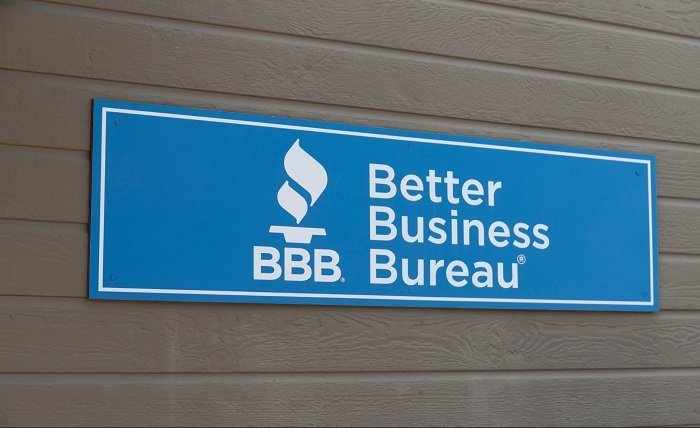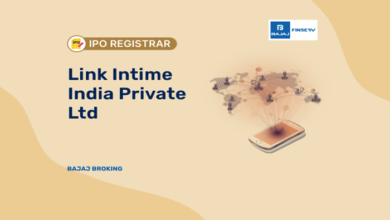Better Business Bureau: Everything You Need to Know to Make Informed Decisions

The Better Business Bureau (BBB) is a private, non-profit organization that aims to foster trust between businesses and consumers. Established in 1912, the BBB provides a platform for consumers to find reliable businesses and report disputes. With a mission to build marketplace trust, the BBB sets standards for ethical business practices, monitors company behavior, and provides accreditation to businesses that meet their high standards.
The Better Business Bureau plays a vital role in supporting both consumers and businesses. It acts as a mediator and information provider, enabling transparency and accountability. Consumers can use the BBB to check a company’s history, read customer reviews, and make informed decisions about whether to engage with a business. Companies that follow ethical practices benefit from the credibility that BBB accreditation offers.
History of the Better Business Bureau
The buiness time was founded over a century ago in response to misleading advertisements and unethical business practices. The organization was originally created to protect consumers from fraudulent activities and to provide them with reliable information. Over the years, the BBB has grown to become a trusted source of information for consumers looking to verify a company’s legitimacy.
The Better Business Bureau has evolved with the changing needs of consumers and businesses alike. During the 20th century, it primarily focused on unethical advertising practices, but today, its services extend to verifying companies’ trustworthiness, accrediting businesses, and providing mediation for consumer complaints. The BBB remains a respected name in consumer protection, serving millions of users in the U.S., Canada, and Mexico.
BBB Accreditation: What It Means for Businesses
BBB accreditation is a significant symbol of trust for businesses. When a company receives Better Business Bureau accreditation, it means that the company meets the BBB’s standards for ethical practices and customer service. This accreditation not only improves a business’s credibility but also signals to potential customers that the company is committed to upholding high standards.
Accredited businesses are granted the right to display the BBB seal, which helps build consumer confidence. Accreditation also means a commitment to resolving consumer complaints in a timely and fair manner. A business that has been accredited by the Better Business Bureau is viewed more favorably by potential customers, as it provides assurance that the company values customer satisfaction.
How the BBB Rates Businesses
The Better Business Bureau uses an A+ to F grading scale to rate businesses, allowing consumers to evaluate companies at a glance. These ratings are based on several factors, including complaint history, transparency in business practices, and the extent of the company’s response to customer issues. The more proactive a company is in resolving complaints, the higher the rating it can achieve.
Ratings by the Better Business Bureau serve as a benchmark for a company’s performance. Factors such as the number of years in business, type of business, and advertising review also play a role in the rating process. Consumers often rely on BBB ratings to determine whether a company is reliable, making these ratings an important aspect of maintaining a reputable business profile.
How Consumers Can Use the BBB
Consumers can use the Better Business Bureau to find trustworthy businesses, file complaints, and research companies before making a purchase. The BBB website allows consumers to search for businesses by name, type, or location. The organization also provides access to business ratings, customer reviews, and complaint histories, which can be invaluable when making decisions about where to spend money.
One of the most important functions of the Better Business Bureau for consumers is its complaint resolution service. If a consumer experiences an issue with a company, they can file a complaint through the BBB, which will then work to mediate and find a fair resolution. This service is particularly useful when dealing with unresponsive companies or unclear policies.
The Benefits of BBB Accreditation for Consumers
For consumers, BBB accreditation is a clear indicator that a company adheres to ethical business practices. Businesses that are Better Business Bureau accredited must maintain a commitment to resolving consumer disputes and following transparent practices. For consumers, this means they are more likely to receive fair treatment and have a reliable point of contact in case of any issues.
BBB accreditation helps consumers make informed decisions, particularly in industries with many service providers. The Better Business Bureau holds businesses accountable, which in turn creates a safer marketplace for everyone. Consumers who value trustworthiness and quality of service can rely on the BBB seal when choosing who to do business with.
How the BBB Resolves Consumer Complaints
The Better Business Bureau plays a critical role in consumer protection through its complaint resolution services. When consumers file complaints against businesses, the BBB acts as a mediator, attempting to bring both parties to an agreeable resolution. This service is invaluable for consumers who may not have the means to take legal action or who are looking for a straightforward solution to a dispute.
The BBB’s complaint resolution process starts with the consumer submitting a complaint, after which the Better Business Bureau contacts the business and requests a response. The company is encouraged to address the issue, and in many cases, a resolution is reached. This process not only helps the consumer but also encourages businesses to prioritize customer service.
Criticisms and Limitations of the BBB
While the Better Business Bureau is a respected entity, it is not without its criticisms. One common criticism is that the BBB’s funding comes from membership fees paid by accredited businesses. This leads some to question whether the BBB can truly be impartial when rating businesses, especially when the organization receives money from those businesses.
Another limitation of the Better Business Bureau is that it doesn’t have the legal authority to enforce its decisions. While the BBB can encourage companies to resolve complaints and improve their practices, it cannot compel businesses to do so. Consumers should view the BBB as one tool among many when evaluating a business.
How to File a Complaint with the BBB
Filing a complaint with the Better Business Bureau is straightforward and can be done online. Consumers need to provide details about the dispute, including information about the business and the nature of the complaint. Once submitted, the BBB contacts the business in an attempt to mediate the issue and resolve the complaint in a fair manner.
The BBB’s complaint submission process is transparent, allowing consumers to track the status of their complaints. If a business fails to respond, the Better Business Bureau will note this in the company’s profile, which can impact the business’s rating. The BBB’s complaint resolution service is a powerful tool for consumers looking to address issues without resorting to legal action.
BBB Scam Tracker: Protecting Consumers from Fraud
The Better Business Bureau also offers a tool called the Scam Tracker, which allows consumers to report and view scam activity. This resource helps protect consumers from fraudulent schemes by providing real-time information about scams happening in their area. By sharing this information, the BBB helps individuals stay informed and take precautions to protect themselves.
The Scam Tracker is part of the Better Business Bureau’s ongoing effort to educate the public about potential threats. By utilizing this tool, consumers can learn about the types of scams that are prevalent, report suspicious activities, and ultimately make safer financial decisions. The BBB’s focus on fraud prevention is an important aspect of its mission to protect consumers.
The Role of BBB in Promoting Ethical Advertising
The Better Business Bureau is actively involved in promoting ethical advertising standards. The organization reviews advertising practices and ensures that businesses adhere to truthful and transparent communication. Misleading advertising can be reported to the BBB, which will then investigate and, if necessary, request changes from the business involved.
By maintaining standards for ethical advertising, the Better Business Bureau helps protect consumers from being misled by false claims. Companies that do not comply with the BBB’s standards risk damaging their reputation and losing accreditation. Ethical advertising is a crucial part of fostering trust in the marketplace, and the BBB’s role in this is fundamental.
Conclusion
The Better Business Bureau plays an essential role in promoting trust between businesses and consumers. Whether it’s through accrediting ethical businesses, mediating disputes, or providing tools to fight fraud, the BBB’s contributions to consumer protection are significant. While it has its limitations, the Better Business Bureau remains a valuable resource for anyone looking to make informed decisions in the marketplace.
Consumers and businesses alike can benefit from understanding the role of the BBB. For businesses, BBB accreditation is a mark of trust and reliability, while for consumers, it offers peace of mind and a way to address grievances. As the marketplace continues to evolve, the Better Business Bureau will likely continue to adapt, always aiming to foster a fair and trustworthy environment for all.
FAQs
1. What is the Better Business Bureau? The Better Business Bureau (BBB) is a non-profit organization that aims to promote trust between businesses and consumers by accrediting companies and mediating disputes.
2. How does BBB accreditation benefit a business? BBB accreditation shows that a business meets high standards of ethical practices, improving credibility and consumer trust.
3. How can I file a complaint with the Better Business Bureau? To file a complaint with the BBB, you can visit their website, provide details of the dispute, and the BBB will attempt to mediate a resolution.
4. Does the BBB have legal authority to enforce actions? No, the Better Business Bureau does not have legal authority to enforce actions but acts as a mediator to resolve consumer complaints.
5. Is the BBB completely impartial? While the BBB aims to be impartial, it is funded by membership fees from accredited businesses, which has led to some criticism regarding its objectivity.



